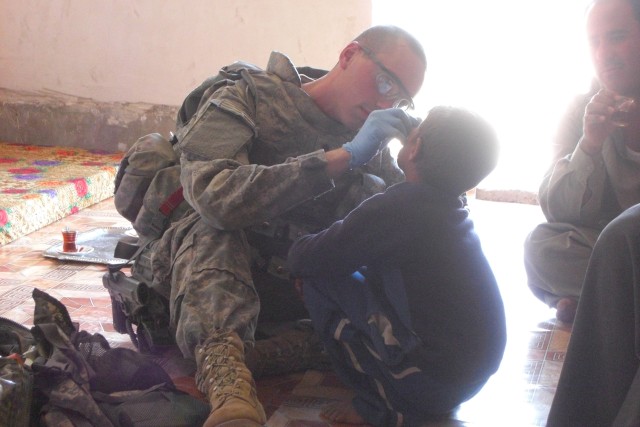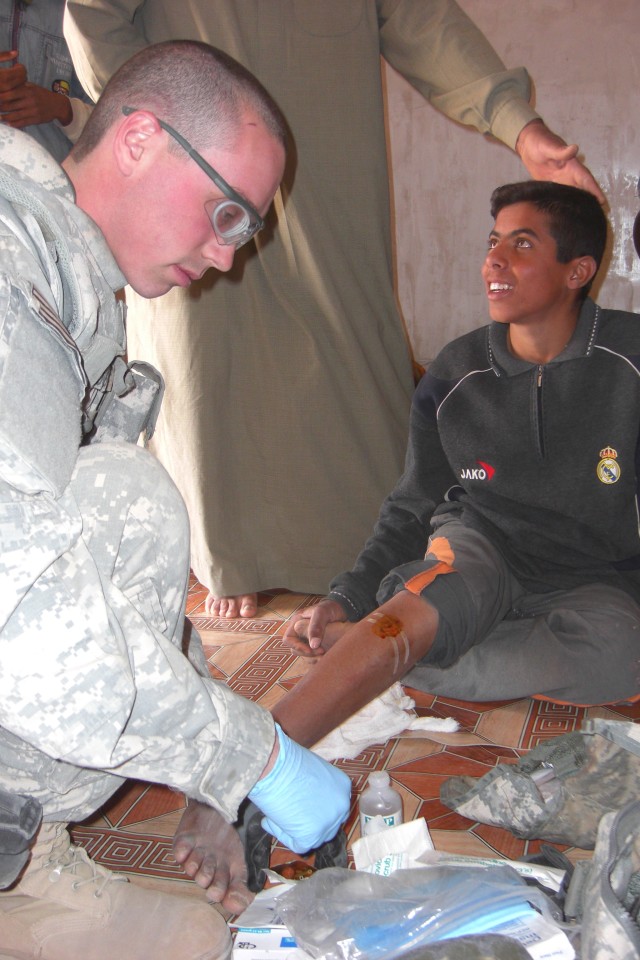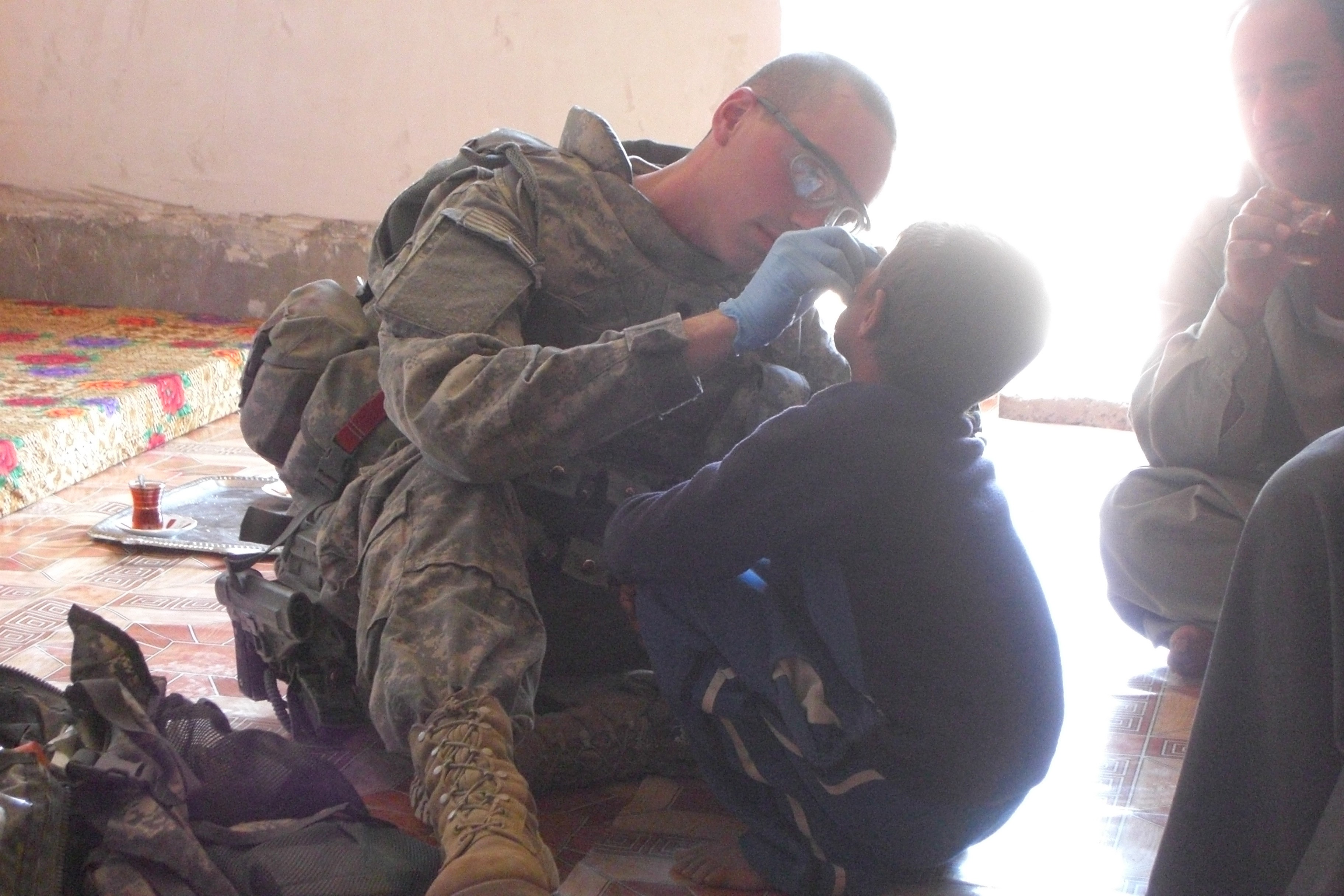TAJI, Iraq - A Pennsylvania Army National Guard medic is making a big difference for children here by providing just a little bit of medical care.
Spc. Neal Cooper, from Myerstown, Pa., is a medic assigned to Troop A, 2nd Squadron, 104th Cavalry Regiment, currently working in Sheik Amir village in Taji, just north of Baghdad.
Cooper completed Basic Combat Training and Advanced Individual Training at Fort Sam Houston, Texas in August 2008, only one month before he was to deploy to Iraq. However, Cooper was well aware of the deployment before he signed his enlistment papers.
"I've wanted to go to medical school for a long time," Cooper said, who sees the deployment as a stepping stone to his future career. "Being here in Iraq is just jumping though the final hoops to get there."
The 22-year-old medic expected Iraq to be more of an active combat zone. However, the majority of his work has been based on helping the local populace.
One of Cooper's first tasks as a medic here was diagnosing what looked to be a cyst on the face of an eight-year-old child.
"He had a big scab on his face that had to be drained. He was really good throughout the whole process, remarkably quiet." Cooper said. "The children's medicine is mostly handled by the Sheik's mother."
The growth on the young child's face was diagnosed as a probable Lieshmaniasis (a disease caused typically by sand flies). Cooper removed the scab, treated the wound, and provided the boy with medicine to ease the pain.
In another case, a 14-year-old boy had been attacked by a dog, sustaining gashes and deep marks on both of his legs. Cooper examined the injury, cleaned it, and bandaged it. Through just these minor medical actions, he was able to make the child feel better.
Here, even the smallest injuries, such as minor cuts and scrapes, have the potential to become infected if left untreated. Cooper is happy to help out however he can.
"They don't have any medical care out here, so we're serving a critical role." Cooper said. "I just wish I could do more to help make them self-sustaining."




Social Sharing